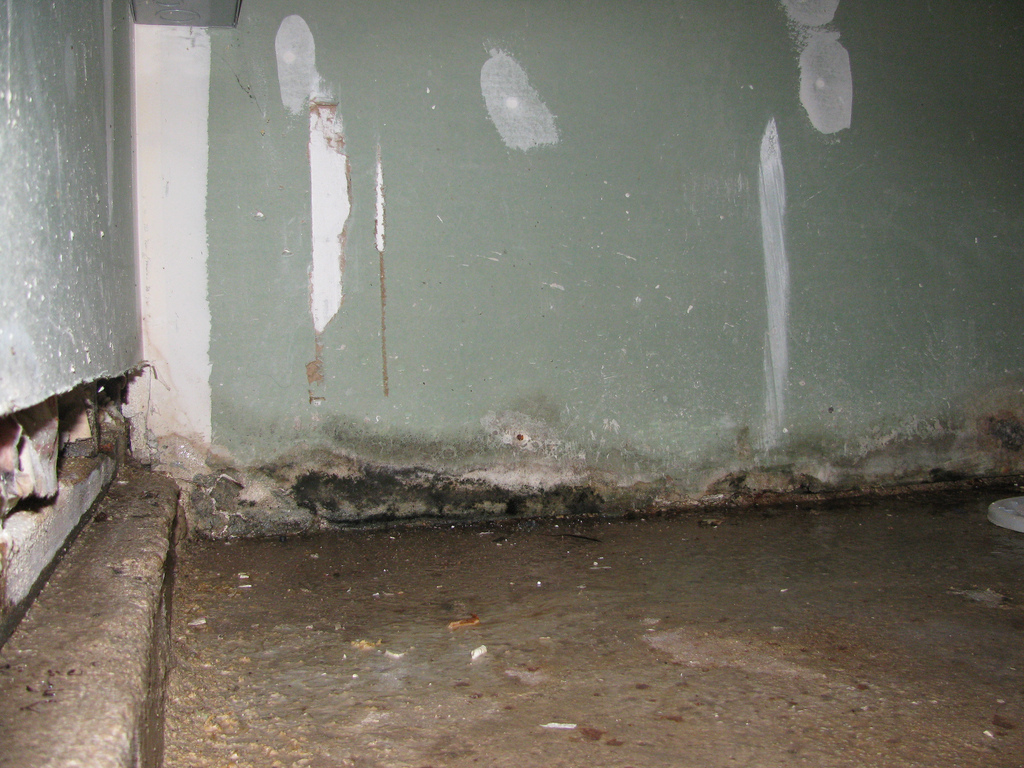Being in business in Central Florida for over 25 years has made me realize that all leaks are not equal. Some are easy to fix and others require extra tools and time. Slab leaks are the most difficult of all the other leak because it requires an inspection of various water and sewer lines of the house. Most ho uses in America are built on a concrete slab foundation, which is a single layer of concrete, normally several inches deep resting on a bed of crushed gravel. Often, pressurized water pipes and sewer lines are installed below the foundation before the concrete slab is poured. These pipes can deteriorate over time (especially copper piping in acidic soil), creating what we know as a slab leak.
uses in America are built on a concrete slab foundation, which is a single layer of concrete, normally several inches deep resting on a bed of crushed gravel. Often, pressurized water pipes and sewer lines are installed below the foundation before the concrete slab is poured. These pipes can deteriorate over time (especially copper piping in acidic soil), creating what we know as a slab leak.
Symptoms include: sudden spike in the water bill, noticeable drop in water pressure, the constant sound of water running, damp carpeting or other flooring, foundation cracks, mildew in the walls or in the basement. If the leak is in a hot water line, the floor above it may feel warm to the touch. It’s important to find and fix slab leaks as soon as possible.
A small water problem may turn into cracks in the walls, ceiling, even concrete slabs and foundations. Leaks in piping indoors, piping and sewers outdoors and or in pools can be huge problems. Whenever you see or hear water running through the pipes or in the walls, you may have a leak, and need to take action immediately. A leak can be critical to your budget and to your property value. You must take the right steps to properly detect and solve your problem.
How Much Does it Cost?
- Detecting leakage and finding the site of a slab leak can require specialized equipment and skills can range from $125-$400. Some plumbing companies offer slab leak detection as part of their repair services, but many use contractors who specialize in slab leak detection.
Note: At Certified Leak Detection, we have leak detectors on staff, we never have contractors. - If the slab leak is just one symptom of a disintegrating plumbing system and it appears that leaks will continue to occur throughout the house, it might be time to replace all the pipes, which could cost $2,000-$15,000 or more.
What Is Included?
- The overall system should be tested to confirm there is a leak. Water lines are typically tested with a pressure gauge or compressor; sewer lines by blocking the outlet to the sewer main and filling the pipes with water. Identifying the specific location of any leaks may be done with various electronic listening devices or video cameras.
- Repairing a slab leak typically requires removing any flooring material, breaking through the concrete foundation, cutting out the damaged pipe, installing new piping, then pouring new concrete and replacing the flooring.
- Rerouting pipes involves locating and uncovering the nearest manifold, closing off the leaking line and running new pipes through an alternative location, such as the attic. If the main water supply enters the house through pipes under the slab foundation, and the secondary pipes coming off that main line are all aging, replacing the all the pipes might be the most efficient (but expensive) option.

For questions & concerns about this leak detection service, please call or contact us
Excerpts from Article Base & Cost Helper
